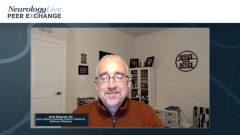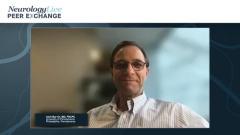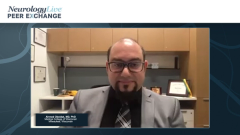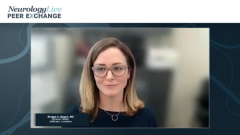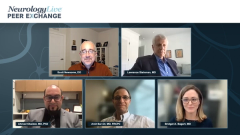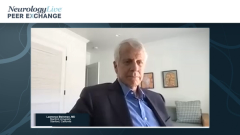
Clinical Implications and Patient Education Surrounding the Link Between Epstein-Barr Virus and Multiple Sclerosis
Bridget A. Bagert, MD, and Ahmed Obeidat, MD, PhD, examine the clinical implications of a causal link between Epstein-Barr virus and multiple sclerosis and provide insight on how to discuss this link with patients.
Episodes in this series

Scott Newsome, DO: Thinking about the broader picture, when I’m in clinic and trying to discuss these studies, it’s very challenging to bring it down to where I can understand it, so I can relate it to the patient. Bridget and Ahmed, how do you describe this to patients? In my clinic, people are coming in and asking, “I saw this cool study. It looks like EBV [Epstein-Barr virus] is the cause of MS [multiple sclerosis] or may be somewhat of a trigger.” The first question is, are you getting the same questions as I am from patients in clinic? No. 2, how are you speaking to the patients about this?
Bridget A. Bagert, MD: I’m happy to start. Lots of questions. Everybody is talking about it. We get portal messages about it. Patients are asking about it in clinic. It really has made a big splash. In patient support groups and on their Facebook pages, everyone is talking about it. I talk about it. Not everybody, but a lot of people ask, “What’s new in research? What are you excited about? What’s the future hold for me?” Patients with progressive MS ask these questions a lot.
I explain that especially in 2022, a few papers have come out that give us a lot more confidence in understanding MS. Because we’ve always said, “We don’t know what causes MS.” But we understand a lot. We have ideas. We’re learning more, but we don’t know the cause of MS. Now I say we’re a lot closer. We’ve made a big leap toward understanding the root cause of MS. There are still important elements of the pathophysiology that we need to figure out, of course. We haven’t sorted it all out. But I say that once we understand the root cause of something, we’ll have a much better likelihood of treating it more effectively and curing it 1 day. I talk about that because I believe it. I’m much more optimistic about a cure based on research that’s come out this year. That’s how I explain it.
Scott Newsome, DO: Let’s go to you, Ahmed.
Ahmed Obeidat, MD, PhD: I’m a very similar. This question has always come up in clinic. When I started [practicing] in 2018 at Medical College of Wisconsin, I started to build my practice, and patients would come in. We’d talk about what possibly [could be the] cause of MS, because that’s part of understanding why the disease happens. People ask, “Why me? Why did I develop MS? Why not someone else in my family? Why not people who may have similar environments [and who] share similar genetics?” We discuss this combination of factors.
We always say there’s a genetic predisposition. We’re understanding this more. But there are plenty of environmental factors. It’s a multifactorial disease. We’ve always talked about EBV. I had an interest in EBV when I was a resident and a fellow. I wrote a paper on how EBV interacts with low vitamin D and specific genetics and how it may develop into MS. I’ve always thought about it, so I’ve tested my patients’ serology for EBV as part of my routine. In my clinical evaluation of viruses, I do herpes simplex 1 and 2 and EBV serology—IgG mostly—looking at EBNA, because it’s a test that we would do clinically.
I’ve talked about this, and I’ve never had the ability to tell them, “This is a direct cause, or it may be temporarily associated.” We lack this. We didn’t have this until recent studies, where there is an association. Now I’m changing a little more. I say with more confidence that EBV is a necessity perhaps, but not a sufficient step in the disease process. EBV is important in the development of MS.
I also discuss with patients the progression of the disease and the relapse. Maybe this is implicated in the disease progression, and interventions directed at EBV may help ameliorate the disease or help slow down the progression. This is something we’ll probably talk more about, but I’m talking about it more. I’m introducing it more to my patients. It’s always part of the discussion, but it’s coming up more. We receive phone calls and receive MyChart messages. I receive emails from outside the [United] States and within the United States because we run some of these studies. People are very interested in this.
Scott Newsome, DO: I have to say, I welcome talking about a virus different from SARS-CoV-2 [severe acute respiratory syndrome coronavirus 2].
Transcript Edited for Clarity
Newsletter
Keep your finger on the pulse of neurology—subscribe to NeurologyLive for expert interviews, new data, and breakthrough treatment updates.

